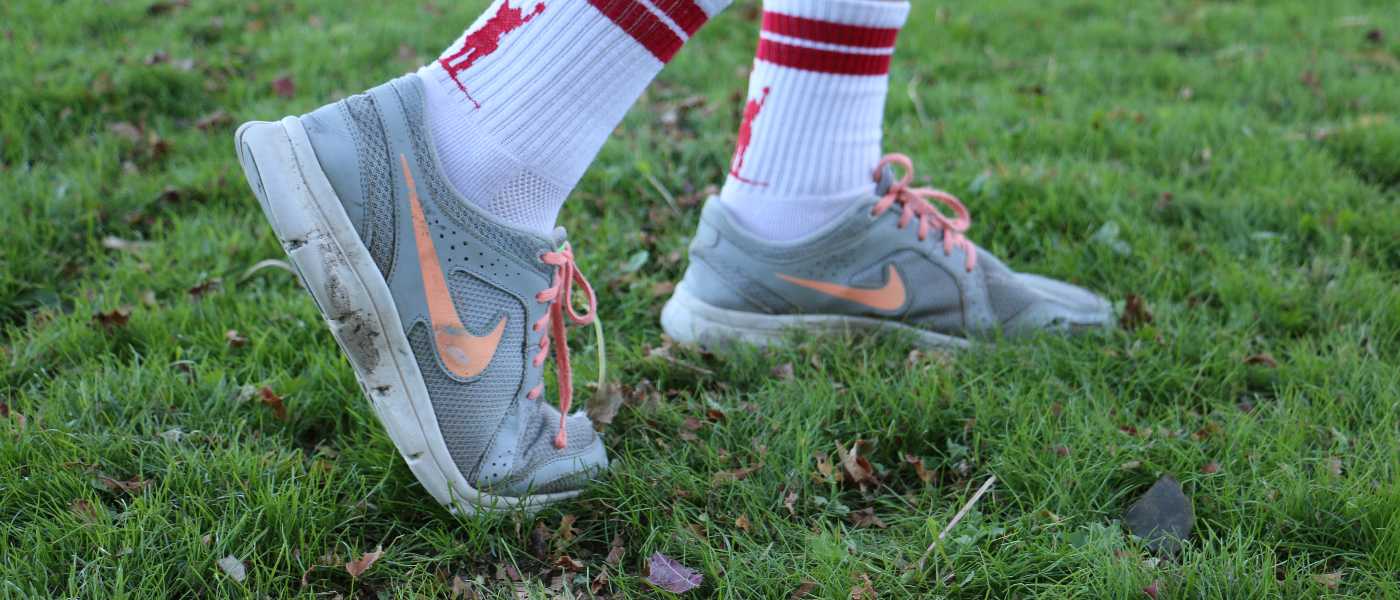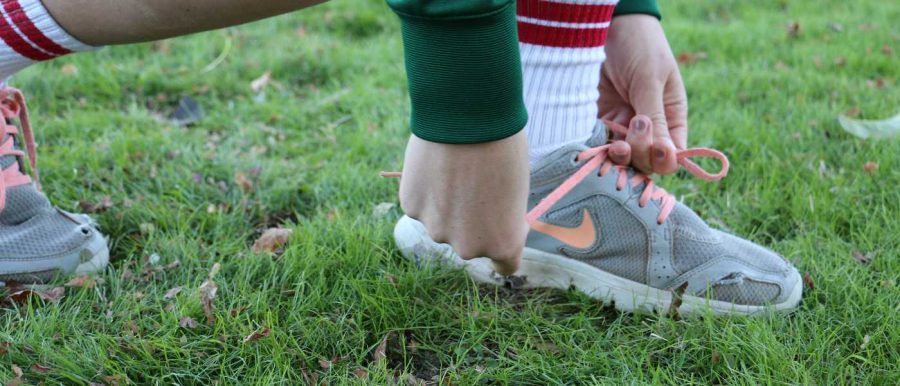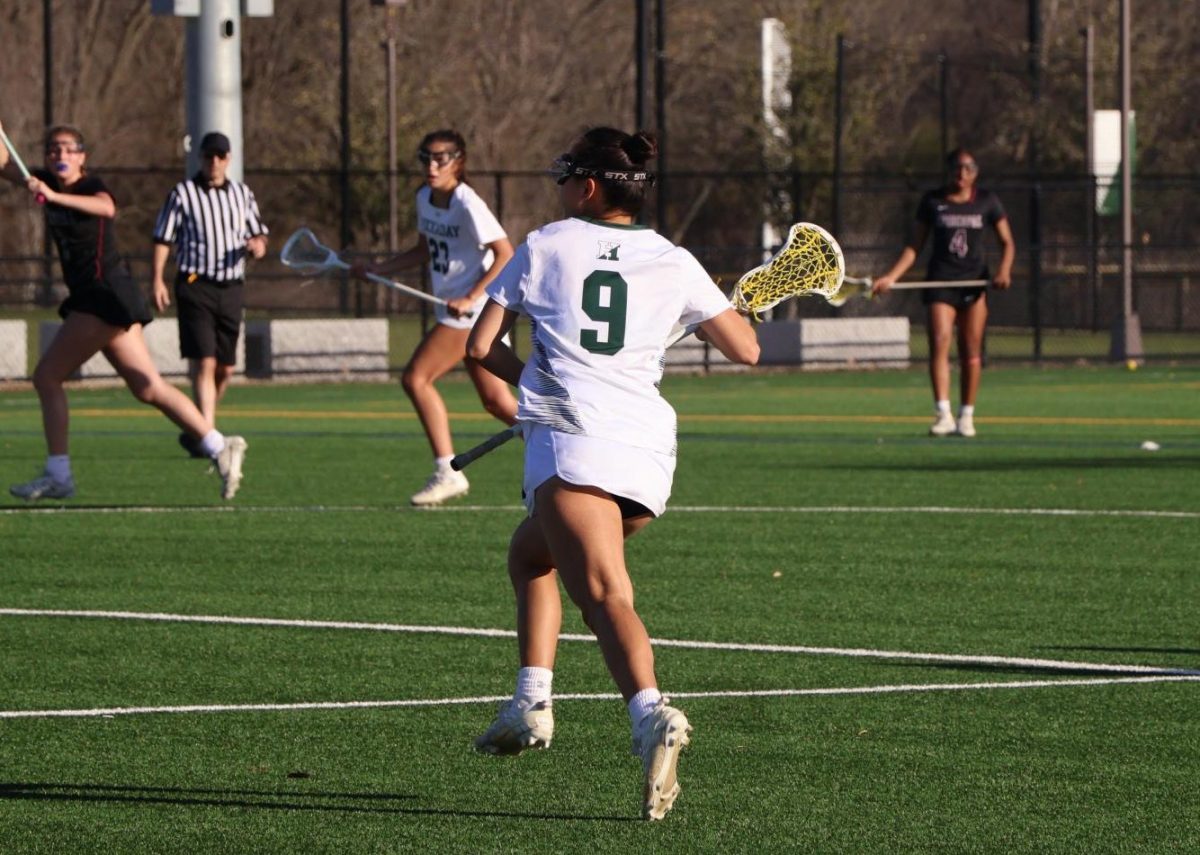It’s 58 degrees Fahrenheit outside. Senior Ilana Perkins deftly dribbles the soccer ball down the field, dressed in layers of Under Armour over a white Hockaday T-shirt. With winter rapidly approaching, athletes like Perkins who play outdoor sports have had to adjust to cooler temperatures. The question remains: does working out in the cold actually burn more calories than working out in warm weather?
According to Upper School science teacher Marshall Bartlett, working out in the cold does burn more calories. Bartlett explains that our bodies have thermoregulation processes that maintain their core temperature within a certain range. If our core temperatures were to vary by more than a few degrees on either side of our normal body temperature, which is 98.6 degrees Fahrenheit or 37 degrees Celsius, systems in our bodies would shut down.
“On a cold day, the air outside is cooler so you lose heat at a more rapid rate,” Bartlett said. “In order to maintain your temperature, your metabolism has to increase in order to replace the heat you’re losing.”
When you exercise in the cold, the workout itself does not burn many more calories than a summer workout would. In fact, if you were not even exercising on a cold day, you would still burn more calories just by standing there and shivering.

Perkins, who plays field hockey and soccer, actually prefers working out in the cold over the heat. According to Perkins, playing sports in the burning heat of summer is more tiring.
“I play soccer in the summer on turf fields and it’s terrible just because it’s so hot outside,” Perkins said. “It can be miserable too when it’s cold, but it’s still better than 100 degree summers.”
Perkins believes that working out in the cold is more bearable because she can actively do things to warm herself up.
“It’s about dealing with two separate extremes, but it’s easier to deal with the cold because you can take the right measures,” Perkins said. “Wear Under Armour, and wear more clothes.”
While exercising in the cold can feel better to athletes as well as burn a few more calories, there are also safety risks associated with it. Therefore, Physical Education Coordinator Adaku Ebeniro advises working out in the heat over the cold.
“I highly recommend working out in a warmer setting,” Ebeniro said. “When you work on in cold temperatures you’re exposing yourself to the possibility of hypothermia, frostbite and other things that could put you at risk.”
Bartlett agrees that there are significant health risks at hand.
“After really intense workouts in the cold, some people will feel their lungs burn,” Bartlett said. “You can do physical damage by breathing in a lot of cold air and cooling your lungs below what they normally should be.”
However, there are also ways to stay safe while exercising in the cold. Ebeniro recommends staying hydrated and wearing layers of breathable clothing so as to get enough oxygen and avoid over-insulation.
Ebeniro, who coaches Middle School track and Upper School varsity volleyball, has observed a noticeable difference between the ways girls work to regulate their body temperatures in hot and cold weather.
“I notice that for those who play sports in hotter months, there are more opportunities to stop and hydrate. Also, you don’t wear as much clothing to avoid overheating,” Ebeniro said. “When you play soccer, which is a winter sport, you are moving constantly to stay warm, even if you’re just on the sidelines.”
While it is more advisable to work out in the heat, at the end of the day, exercise is exercise. Bartlett believes that a workout will provide benefits no matter the temperature, and Ebeniro agrees.
“If someone wants to work out regardless of the weather, do it!” Ebeniro said. “Just always be aware of your surroundings and the temperature and your health that day.”









